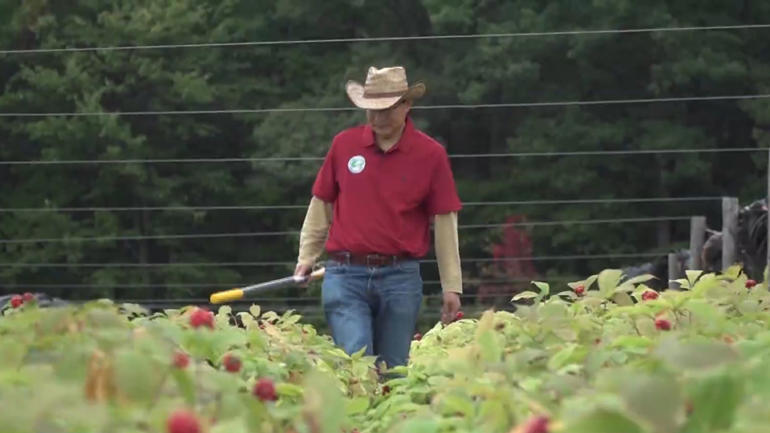The trade dispute between the U.S. and China has impacted a range of industries not least a large portion of U.S. farming. Among the commodities to be affected is ginseng, a product that is predominantly exported to China.
But CGTN’s Dan Williams reports, some U.S. ginseng producers remain hopeful for the long term.
Marathon County, in the U.S. state of Wisconsin.
The rich soil found here is perfect for growing a range of crops including ginseng. Mingtao Jiang began his business here nine years ago.
“It is very critical for the local economy. I would say a couple of thousand people depend on it.”
After years of growth, the trade dispute between the U.S. and China has undermined exports. With ginseng among products hit hard by retaliatory tariffs.
“About 50% of the crop from last year is still on the market,” Jiang said, “and we have a new crop coming up in 4-6 weeks so it has been a hard time for ginseng farmers here.”
Unlike most crops, ginseng takes up to five years to cultivate and harvest. Making it difficult for farmers to react to market changes.
It’s clear the trade dispute has had a significant impact on US ginseng farmers. But that has not deterred Jiang from attempting to explore new markets.
Last year, Jiang exhibited at the Chinese International Import Expo. This time around, he’s pushing ahead with an even larger exhibition stand that will also include goods from other Wisconsin producers.
“This year, we decide to double or quadruple our exhibition space for the second event,” Jiang said.
“We will bring products from Wisconsin including ginseng and ginseng related products as well as other agricultural products. To showcase the best Wisconsin has to offer.”
Despite the tariff challenge, Jiang says exhibiting at the CIIE remains an important part of his long term strategy.
“Our business model has always been to bring the best from Wisconsin or US to China, and that model will stay despite the current hiccup.”
Jiang hopes the expo can help open new avenues, despite the tariffs. And not just for his business but for the Wisconsin region as a whole.
 CGTN America
CGTN America

